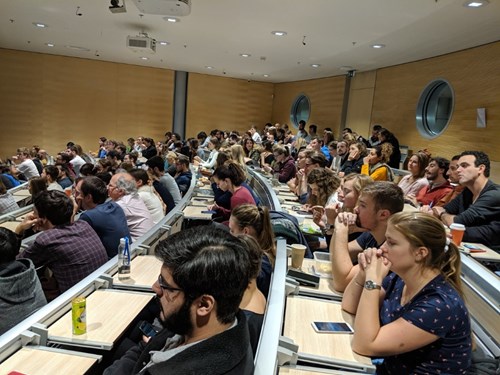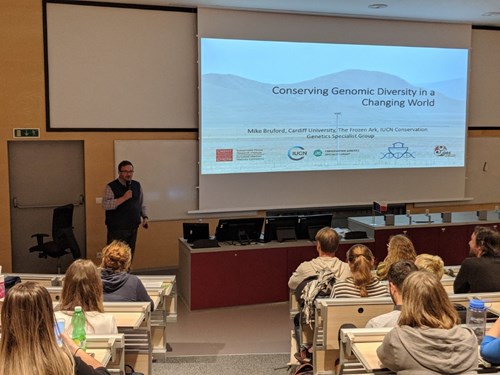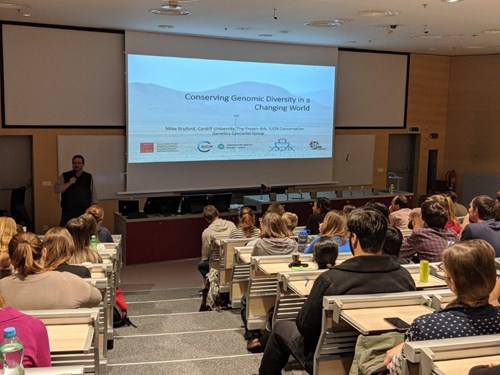Conserving Genomic Diversity in a Changing World
-
31 October 2019
4:00 PM - University Campus Bohunice (pavilion B11/ seminar room 132)
Speaker
Prof. Michael Bruford
Co-director Sustainable Places Research Institute, School of Biosciences, Cardiff University, United Kingdom
"I am a molecular ecologist interested in studying the demographic and evolutionary processes affecting populations, species and ecosystems of conservation concern. We focus on understanding the determinants of genomic diversity, population structure and fitness across species and at a variety of spatio-temporal scales, including studying the behaviour and movements of individuals within their breeding territories, examining how demography and social structure interact with genetic diversity in fragmented ecosystems, through to understanding the partitioning of genomic diversity in species with high vagility and continent-wide ranges.
We focus our projects on trying to understand basic evolutionary processes but we place substantial emphasis on provision of data and recommendations to management authorities for action and policy development."
See more information about Prof. Bruford's research here.
Hosted by
About the lecture
Genomic diversity (GD) is one of the three key components of biological diversity that can be measured, and thirty years of population genetic (and now genomic) research have shown that GD estimators can provide sensitive indictors of changes in demographic processes manifested in population size, connectivity, inbreeding, introgression/hybridization among others. Yes, despite its proven record, GD is rarely incorporated into conservation planning, and we have to ask the question “why?” and examine the prospects for its more meaningful inclusion in conservation policy and management in the future. I will examine the reasons for the limited traction that genetic science has gained in conservation, exemplify some case studies from our own work where genetic and genomic data can fundamentally change conservation management action and discuss prospects for how this situation may improve as we transition into a new decade of conservation planning.
Share event



